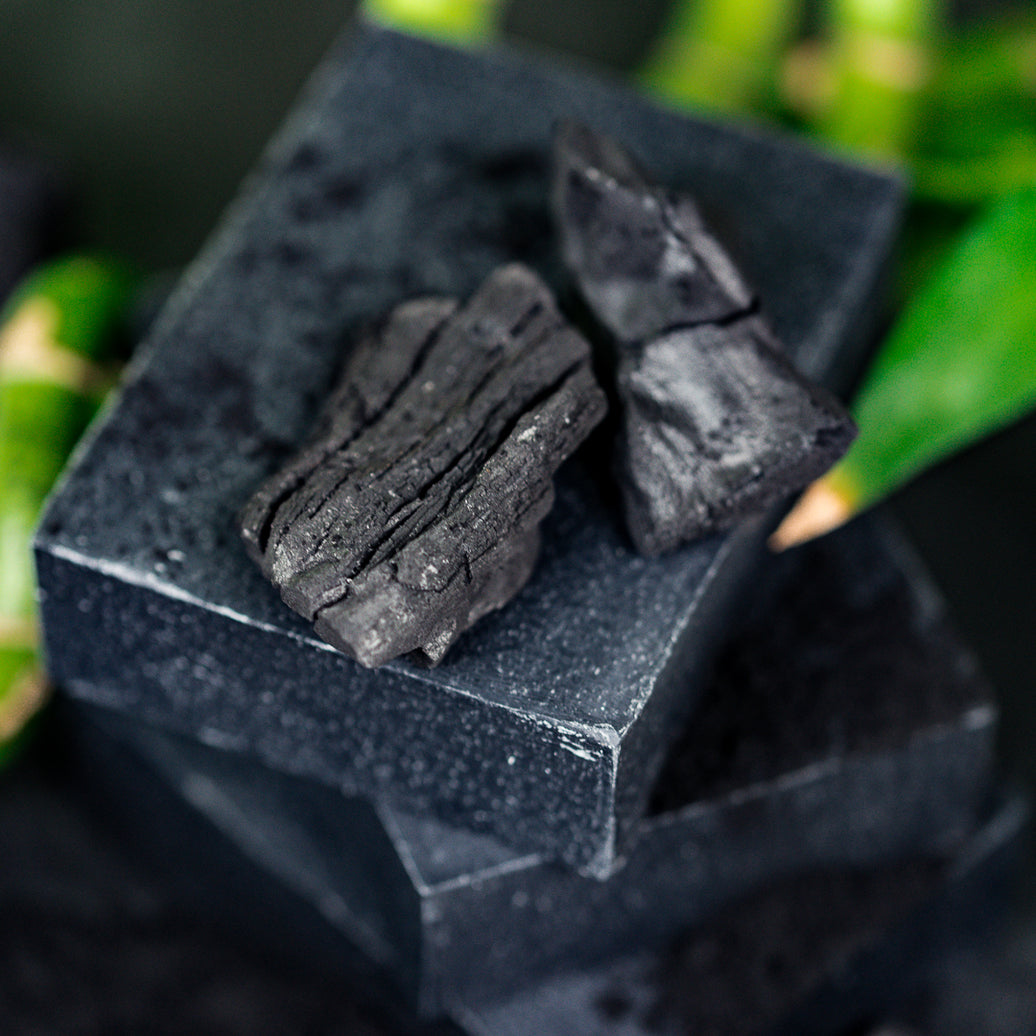
Natural Soap: Bamboo Charcoal
- Out Of Stock
For some people, exfoliation is an important part of a skin care regimen to achieve healthy, radiant skin.

Depending on age, it takes about a month for newly formed skin cells to make their way to the surface. As you age, this process starts to slow, and cell turnover can take as long as 6 to 8 weeks for someone in their 60s or 70s. When old skin cells build up, it can result in a rough, dry, flaky, dull complexion.
Fortunately, gentle exfoliation can help accelerate this process, clearing the path for glowing, healthy skin.
Although soap will remove dirt and excess oil, soap alone cannot remove all of the excess dead cells.
Exfoliating removes dead skin cells, deep cleans the skin, unclogs pores, removes dirt and makeup residue, helps reduce acne breakouts, encourages new cell growth, and stimulates blood flow to the skin’s surface for a fresh, healthy glow. Exfoliation will allow your moisturizers to penetrate deeper and improve the moisture level of your skin.
There are different methods for exfoliation. Your skin type should determine which method you use and how often you exfoliate. For certain skin conditions, including rosacea, exfoliation is not usually recommended. If you have a chronic skin condition please always consult your health care provider.

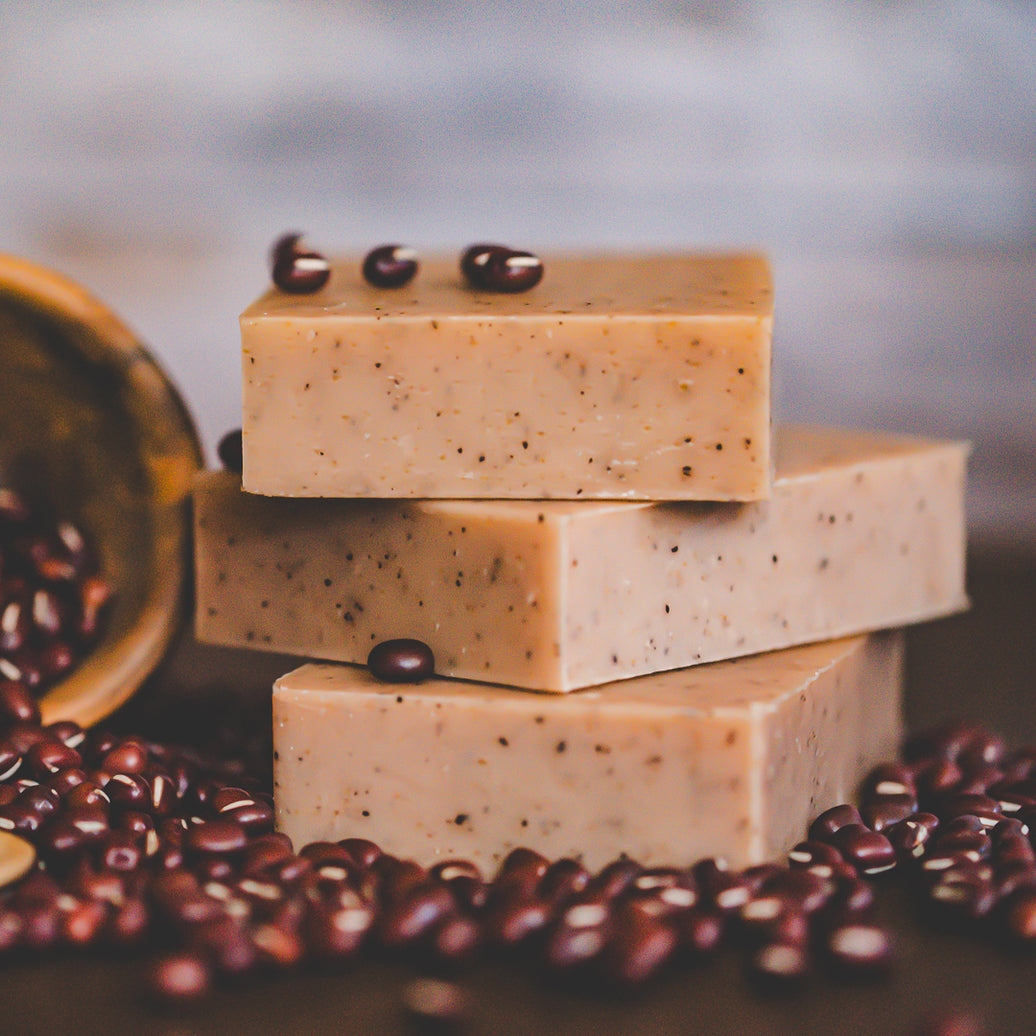
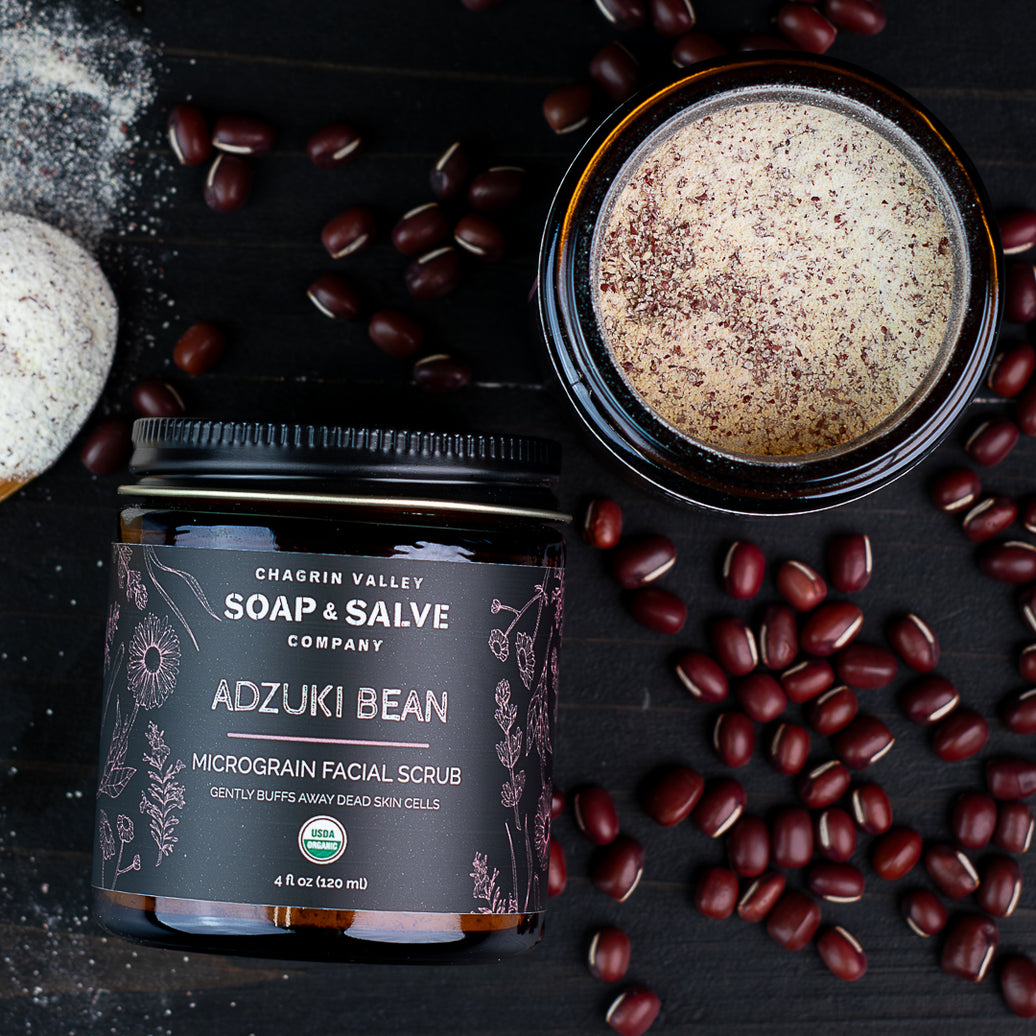
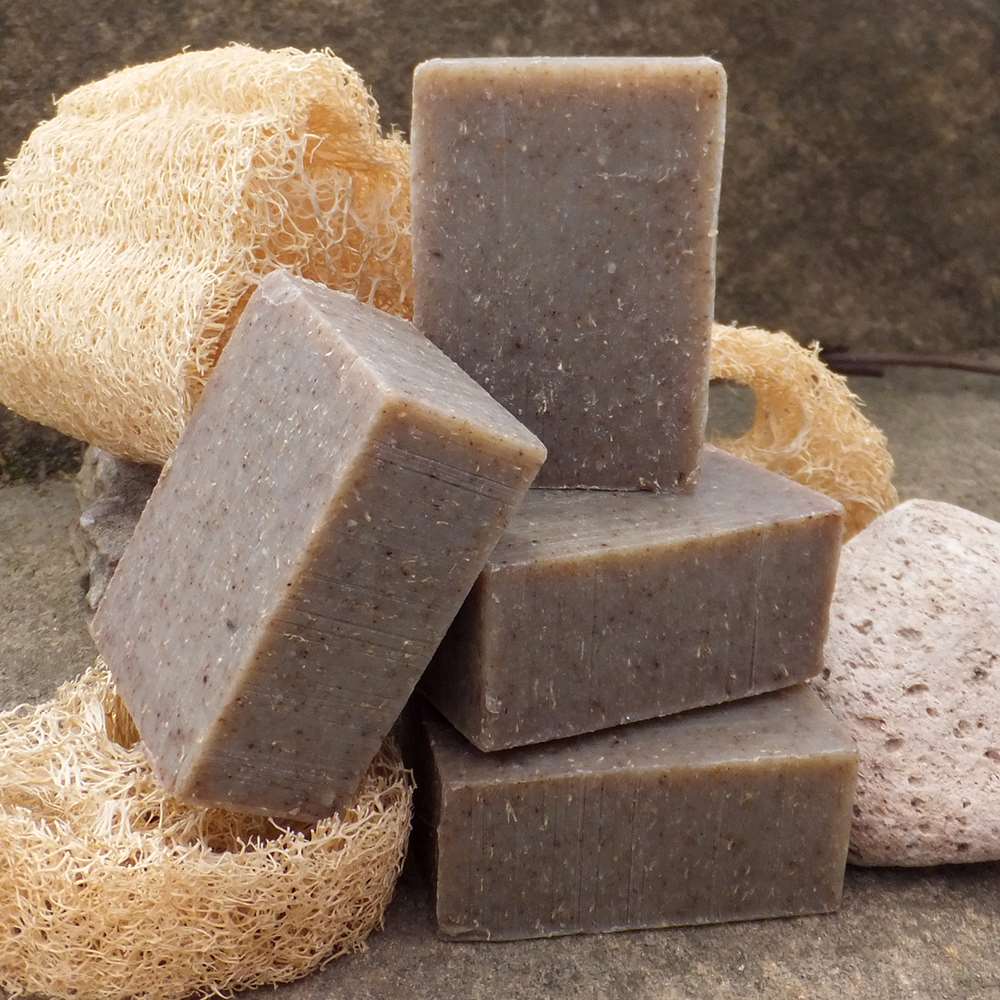
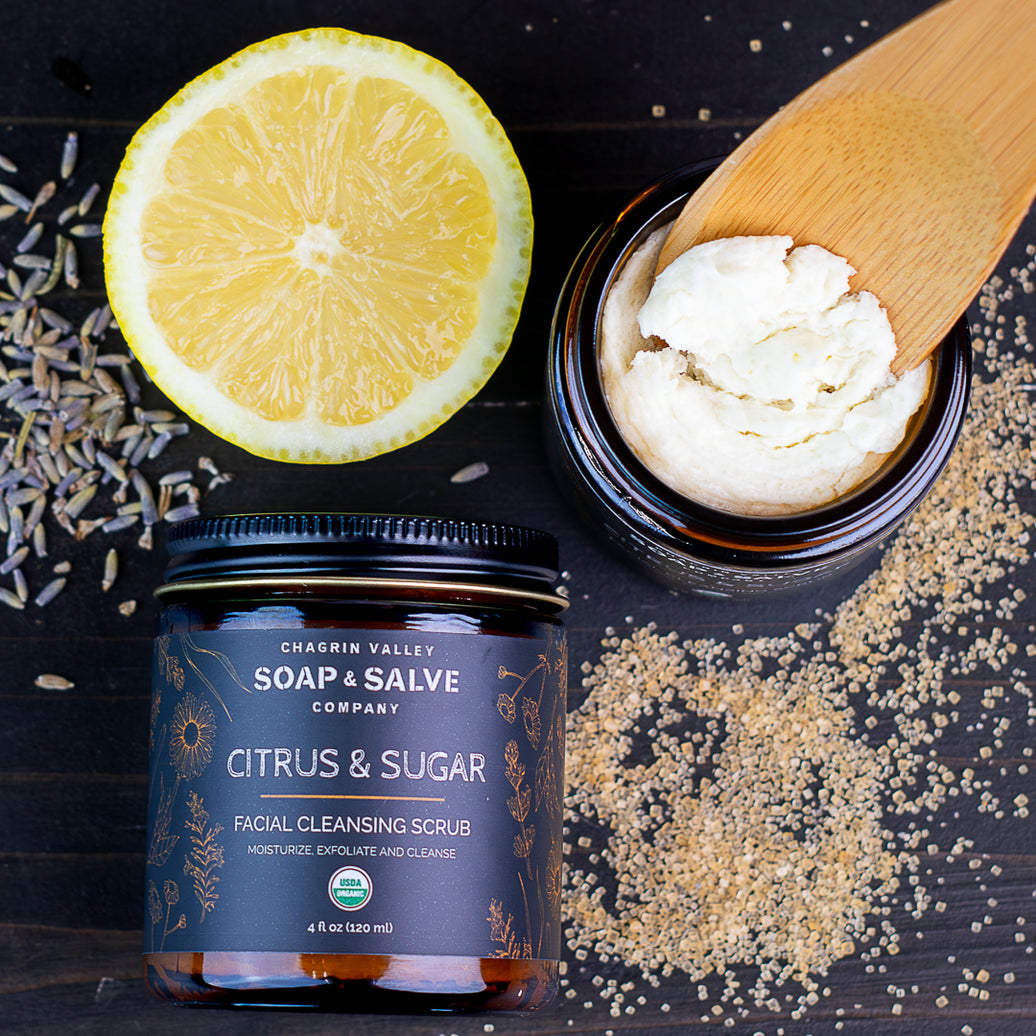
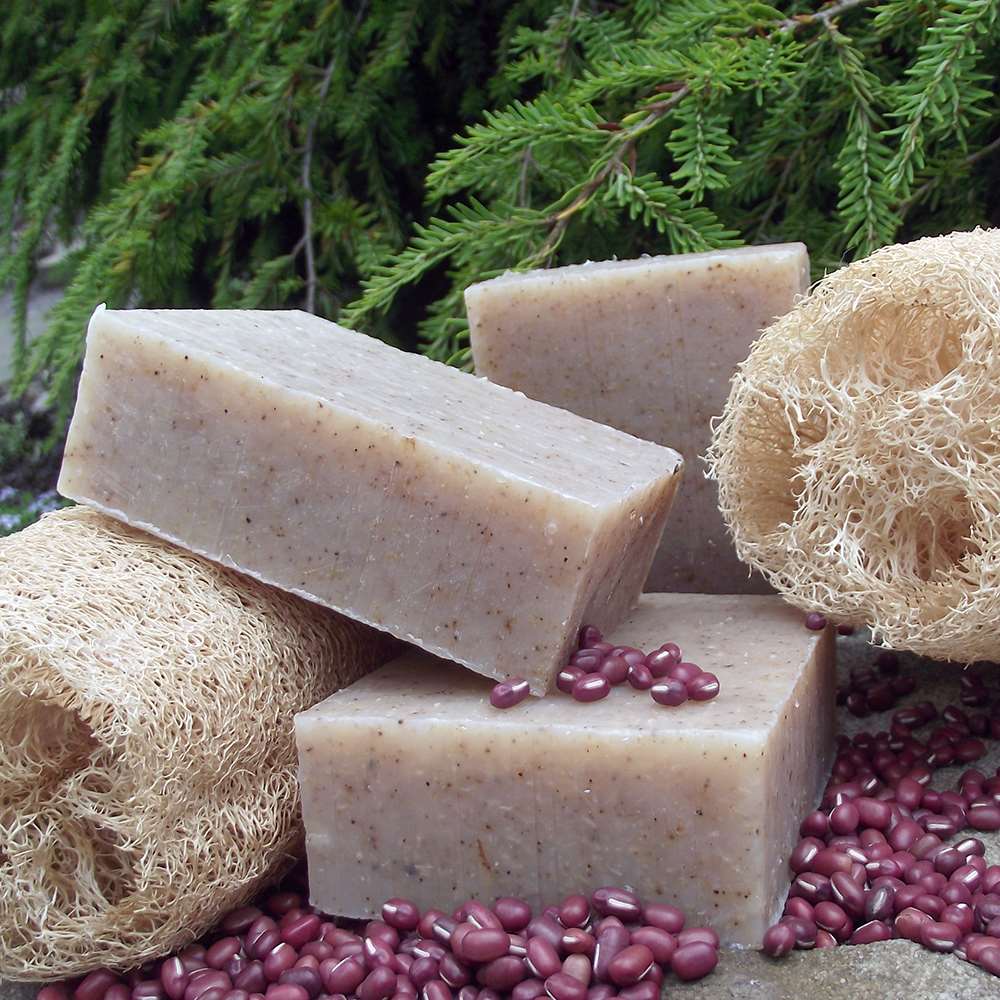
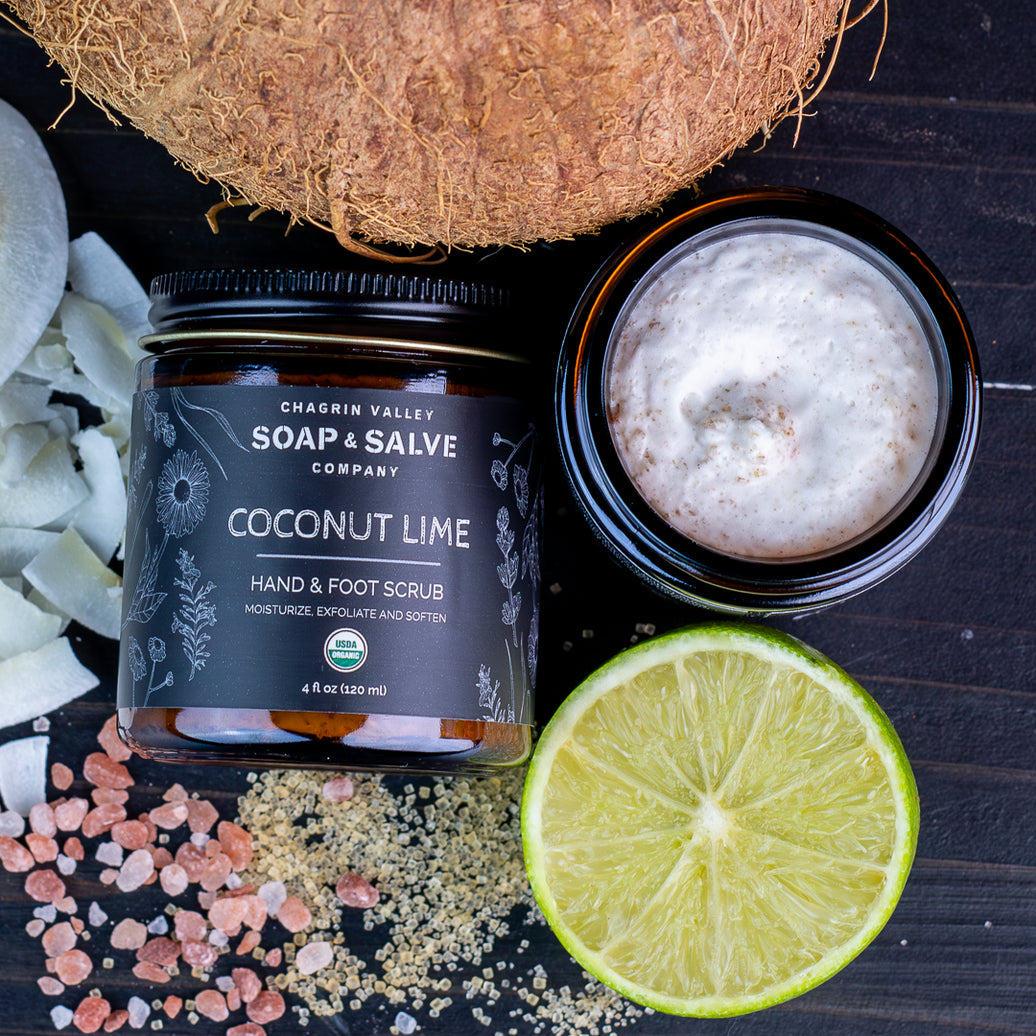
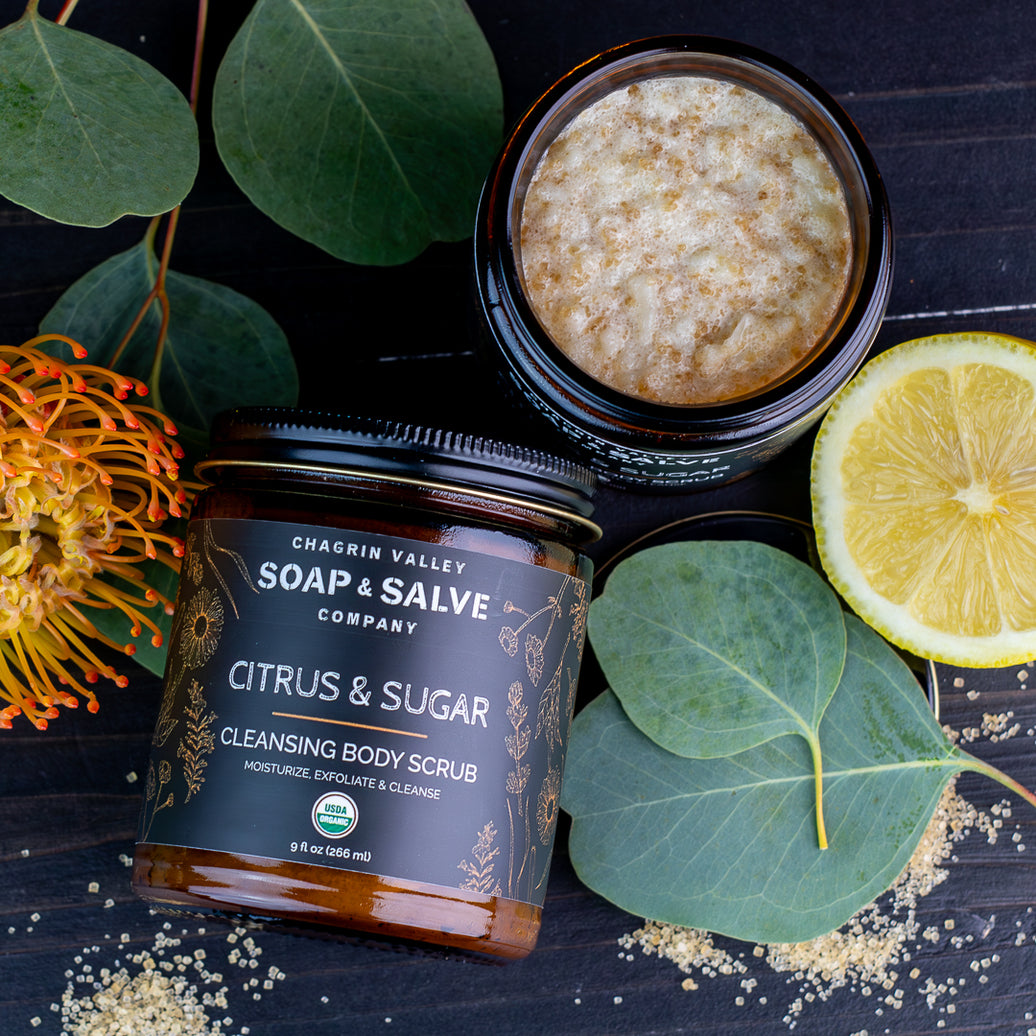
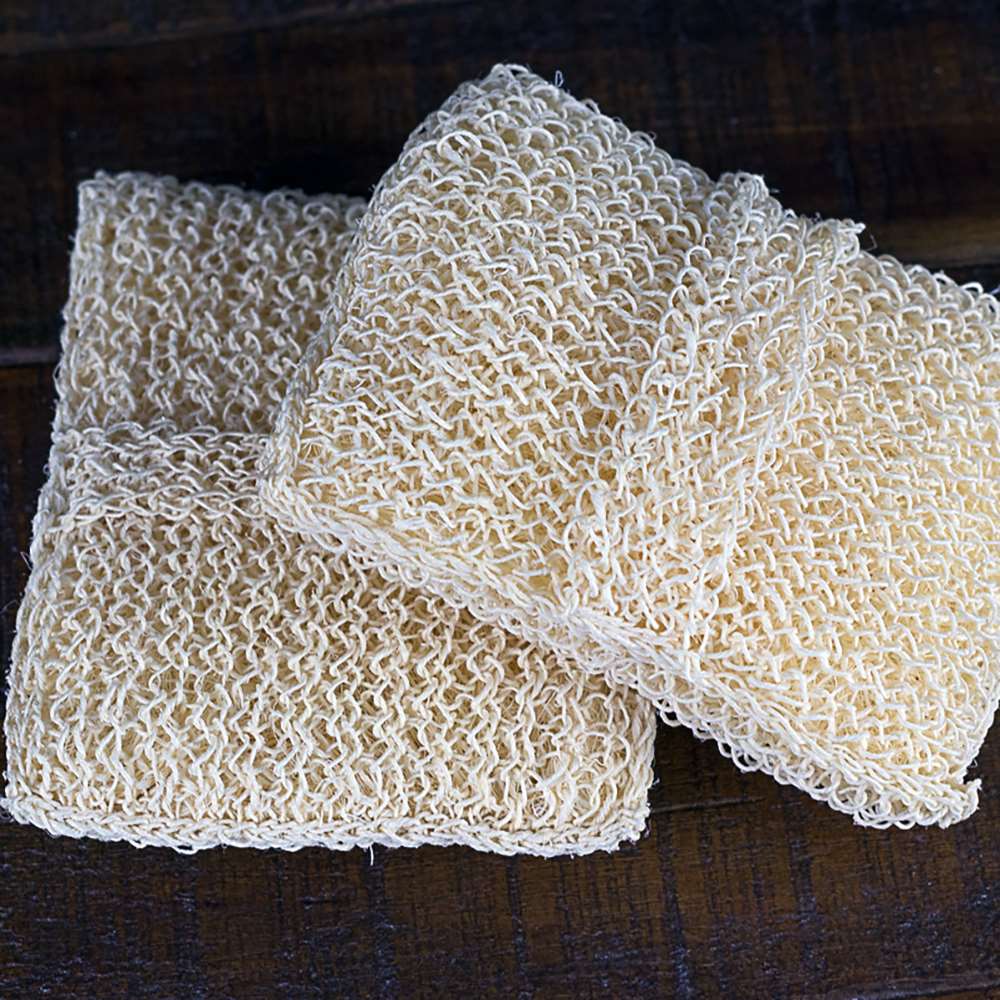
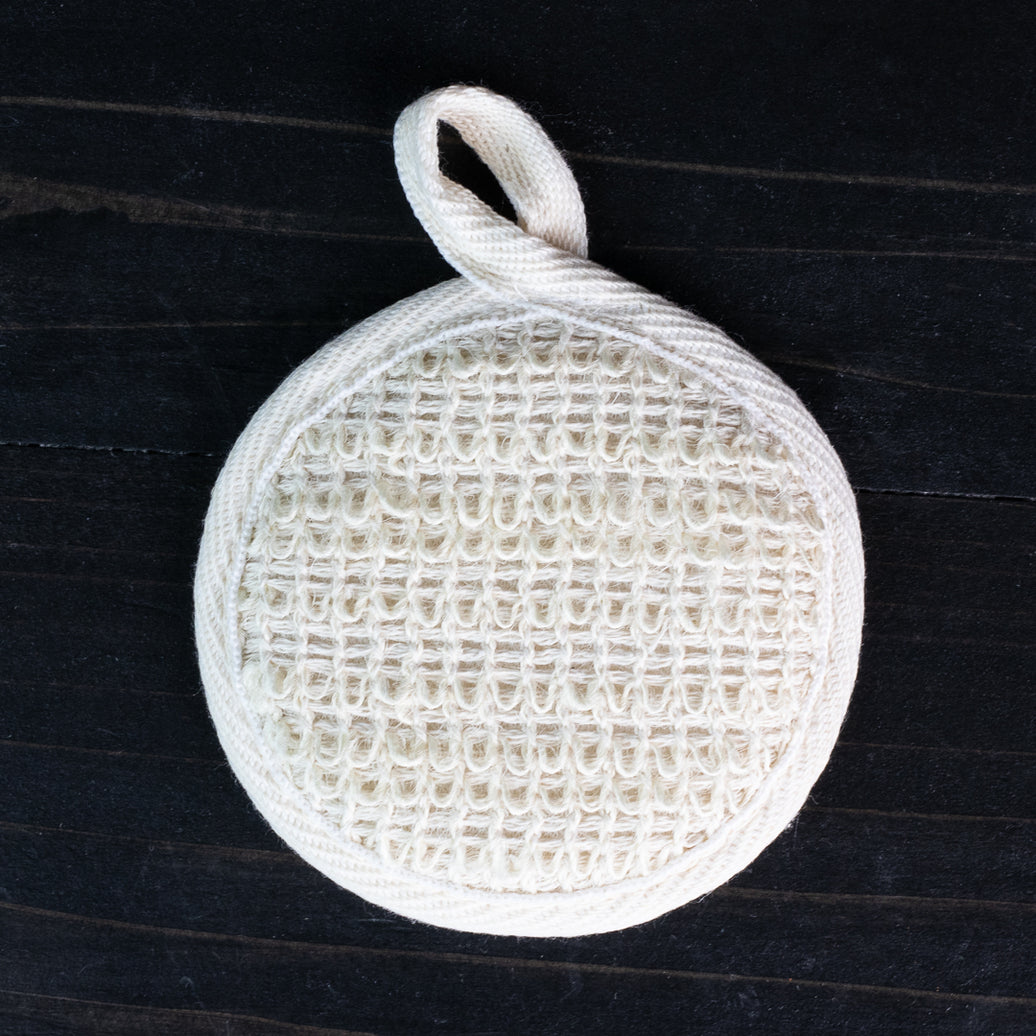
Most importantly, LOOK at your skin and LISTEN to your skin!
Knowing when to exfoliate is crucial so you don't dry out your face or irritate your skin.
 How often you need to exfoliate depends on your skin type, but one or two times a week seems to be the standard for most.
How often you need to exfoliate depends on your skin type, but one or two times a week seems to be the standard for most.
Remember, the purpose of exfoliating is to remove excess dead skin cells. You do not want to scrub so hard that you are removing healthy cells, which will leave your skin red and sore.
Oily skin: exfoliate once or twice a week
Dry skin: exfoliate once a week
Mature skin: exfoliate once a week
You may be wondering, "How Do I Know If I Need To Exfoliate?" Here is a simple test you can do yourself to see if you have dead dry skin cells on the surface of your skin.

According to some experts, the best time of day to exfoliate your skin is at night before bed. This allows skin to repair and regenerate while you sleep, making the most of the natural skin renewal process that happens overnight.
However, the ideal time can vary depending on your skin type and personal preference.
For more comprehensive info on Exfoliation, read our blog, "The Nitty Gritty of Exfoliation"
 The main thing is to go slow and gentle. Some people new to skincare tend to overexfoliate. Take time to see what actually works with your skin in its healthy state.
The main thing is to go slow and gentle. Some people new to skincare tend to overexfoliate. Take time to see what actually works with your skin in its healthy state.
Always begin with the softest textured tools or the finest grains. Massage your exfoliating product firmly but gently on wet skin in a circular motion.
Sensitive facial skin should be massaged gently, while the skin on your torso can be scrubbed a bit harder.
The sensitive area around the eyes does not need to be exfoliated and should not be exfoliated.
Since skin oils tend to hold on to dead skin cells, people with oily skin may need to exfoliate more often.
Exfoliating is part of a skin care routine. You should be cleansing before you exfoliate and moisturizing afterward. Your skincare needs may change with the seasons and as you exfoliate more regularly.
If you have acne-prone or very oily skin you may think you need to exfoliate often. But, washing your face too much and over-exfoliating will dry out the skin.
 The sebaceous glands react to this excess dryness by producing even more oil which ultimately causes more breakouts to occur. So, we suggest exfoliating once or twice a week.
The sebaceous glands react to this excess dryness by producing even more oil which ultimately causes more breakouts to occur. So, we suggest exfoliating once or twice a week.
Exfoliating is especially beneficial during winter. Dry winter air can cause a buildup of dead skin cells and exacerbate skin dryness. Also by removing the barrier of dead skin cells, exfoliation allows moisturizers to penetrate deeper into the skin, maximizing their hydrating effects.
When our skin feels dry we too often slather on heavy creams to compensate for the dryness. But dry skin flaky skin can indicate a build-up of dead, dry skin cells. Why would you want to moisturize these dry, dead skin cells that are trying to leave?
A great product for dry facial skin in need of exfoliation is our gentle Adzuki Bean Scrub.
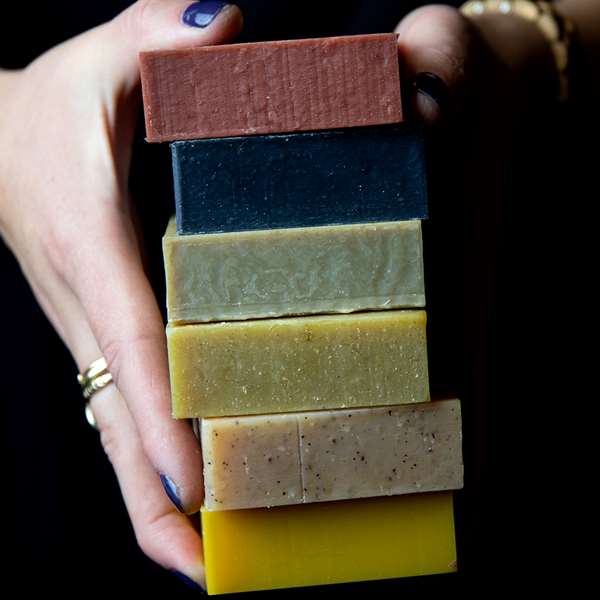 You may not realize it, but simple exfoliation occurs every time you wash your face, from the friction of gently rubbing your skin with a washcloth or even your hands.
You may not realize it, but simple exfoliation occurs every time you wash your face, from the friction of gently rubbing your skin with a washcloth or even your hands.
We have natural soaps that we call "exfoliating" soaps, but we also have many soaps that contain ingredients that provide gentle exfoliation.
Rubbing a simple soap bar containing botanicals or clays can help remove dead skin cells.
While there are many good reasons to exfoliate the skin, it is not necessary for everyone. Skin naturally exfoliates itself, and for many, additional exfoliation can be damaging, especially if done too frequently or with harsh products.
Skin does not need harsh scrubs or aggressive products to achieve glowing skin.
Chagrin Valley face and body sugar scrubs are a moisturizing treat, blending nourishing oils and butters with a medley of fine and coarse grain sugars and honey.
Depending on the type of exfoliation used, a moisturizer may be needed. Remember, moisturizers hydrate best when dead cells have just been scrubbed away.
We advise against using exfoliating products that contain sharp nuts, shells, pits, or hard grains. They are generally considered too abrasive and can cause micro-tears on the skin, leading to irritation, redness, and potential damage to your skin barrier.
If you are unsure whether or not you need to exfoliate, try the tape test mentioned above. Look at the surface of your skin. Do you see clogged pores, dryness, or roughness?
Facial skin should be treated delicately, using very little pressure and small textured granules. Since facial skin may already be inflamed due to acne breakouts, NEVER use harsh facial scrubs on blemished skin, and NEVER use any facial scrub aggressively on blemished skin. Simple exfoliation occurs every time you wash your face from the friction of rubbing your skin with your hands, washcloth, or gentle facial pad.
For more detailed information on the types of exfoliation please read our blog, The Nitty Gritty of Exfoliation.
Exfoliating microbeads were recently banned from from rinse-off cosmetics by mid-2017. Microbeads are made of plastic, do not biodegrade and are polluting the oceans, groundwater, waterways and aquatic life. There are still products out there that contain these plastic spheres--so beware!
Avoid using scrubs that contain pulverized nutshells and fruit pits, like apricot kernels, which often have sharp edges that can tear delicate skin, which can lead to skin irritation and inflammation.
Harsh acid scrubs will irritate already sensitive skin. Salt scrubs are best left for the body since they are too harsh and drying for the face.











Our face has different zones in which the skin can vary in thickness, texture, pore size and the number of oil-producing glands.
Each zone may have very different needs and require individual attention.
So, what happens if you have multiple facial skin issues, like dryness, oily spots, and blemishes?
The answer is Multi-Masking . . .
Multi-masking is exactly what it sounds like. Instead of applying one face mask over your entire face, you apply different masks to different areas of the face in order to treat multiple skincare concerns at the same time.
For more information please read our blog Multi-Masking and Targeted Application For Combination Facial Skin
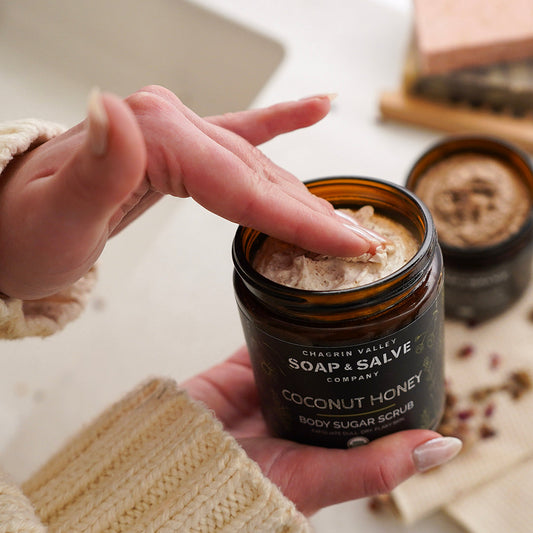
Get informed about exfoliation! Explore the basics, benefits, and best practices for exfoliating your skin so you can make informed decisions about your skincare. Exfoliation can help encourage cell turnover, unclog pores, allow moisturizers to penetrate more effectively, and refresh the skin.
Read Post
Clay facial masks are an easy way to pamper yourself and invigorate your skin. Creating an application technique that works for your skin will get you one step closer to a beautiful complexion.
Read Post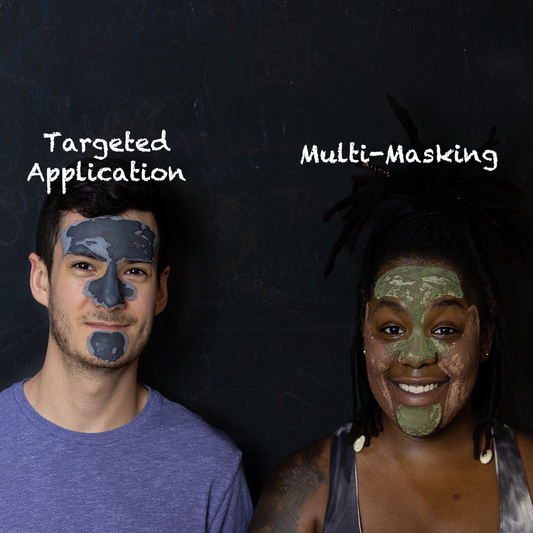
Our face has different zones in which the skin can vary in thickness, texture, pore size and the number of oil-producing glands. Each zone has different needs and requires individual attention.
Read Post
Multipurpose, exfoliating AZUKI BEAN powder gently buffs away dull, dry, flaky skin, helps cleanse pores by absorbing excess oils, removes dirt, and promotes circulation.
Read Post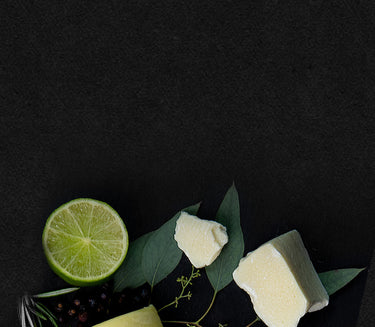

People with severe allergies—please note: If you have severe anaphylactic-type reactions to ANY of the ingredients in ANY of our products, please do not buy our products. We have dedicated soap rooms and product rooms that are kept meticulously clean, but we cannot guarantee against possible cross-contamination of individual ingredients.
Chagrin Valley Soap & Craft is not responsible for any individual reaction to any particular ingredient. Each product description on our website includes a complete list of ingredients. People with sensitivities to any listed ingredient should not use the product. In case you are in doubt always try an allergy patch test and if at any time irritation occurs, discontinue use of the product.
The content and information on this website, provided by The Chagrin Valley Soap & Salve Company, is for educational purposes only and is in no way intended and should not be construed as medical advice to diagnose, treat, cure, or prevent any disease or health condition. The information regarding folklore or health-related benefits of certain ingredients is for educational purposes only. The information provided is not intended to prescribe or be taken as medical advice.
The information provided is not meant to substitute the advice provided by your personal physician or other medical professionals. Do not use the information found on this website to self-diagnose any medical conditions or treat any health problems or diseases. If you have medical concerns regarding yourself or your family you should seek the advice of qualified, licensed health professionals. Never disregard professional medical advice or delay in seeking it because of something you have read on this website.
This information has not been evaluated by the Food and Drug Administration. This notice is required by the Federal Food, Drug and Cosmetic Act.
Read our Full Medical Disclaimer.